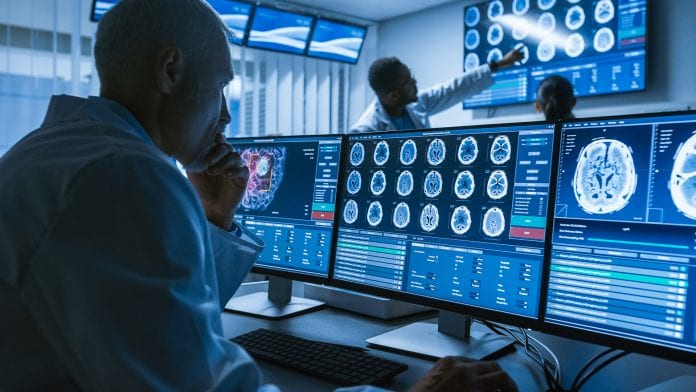
Backed by £23 million (~€26.8 million), cutting edge health projects could aid radiologists to combat diseases and diagnose breast cancer more effectively.
22 March 2019 – Announced today, the Government funding allows cutting edge health projects, to further enable radiologists to diagnose breast cancer more effectively and utilise gene therapy to combat diseases. The funding has been awarded under the Biomedical Catalyst (BMC) programme jointly run by the UK’s innovation agency, Innovate UK and the Medical Research Council (MRC), both part of UK Research and Innovation.
Funding that can help researchers to effectively diagnose breast cancer
Announcing the funding, Life Sciences Minister Lord Henley, said: “From new software to diagnose breast cancer to improved gene therapies for children with leukaemia, these projects show the life-changing effect UK research can have.
“The Biomedical Catalyst programme demonstrates our modern Industrial Strategy in action; supporting businesses to develop innovative products and creating the high-skilled jobs of the future whilst improving the lives of people throughout the country.”
Dr Kath Mackay, Interim Director – Ageing Society, Health & Nutrition, Innovate UK added: “Increasingly, new technologies and treatments are able to address debilitating and chronic conditions that are hard to treat.
“By continuing to invest in innovation through programmes such as the Biomedical Catalyst, we can continue to transform outcomes for patients and support and grow the UK’s world-leading health sector.”
Discover the early stage projects that have received funding of almost £7.5 million
Mammo, Kherion Medical Technologies Ltd – Mammography breast cancer screening software that helps radiologists in the early detection of breast cancer which is critical to survival of women. The software assists breast units to deliver an enhanced breast-screening service (faster, reduced unnecessary recalls/biopsies and lower anxiety). Reduced recalls will save NHS significant unnecessary costs
TRUEinvivo Ltd – around 40% of people who have cancer undergo radiotherapy. TRUEinvivo is developing a 3D cavity dosimeter and image analysis software that can accurately measure the radiation delivered to the tumour along with surrounding organs making the process safer for patients and helping clinical decision making
Freeline Therapeutics Ltd – advanced gene therapy product to treat a rare kidney disease, potentially the first ever effective therapy for this specific condition.
Meet the feasibility projects that received total funding of just over £2 million
Toxicity Alert Biosensor, Altair Medical Ltd
Smartphone monitoring of patients taking opioids, in which sensor is analysed by artificial intelligence to monitor drug use and advises on safe timing of doses, tailored to each individual patient, reducing the risk of overdose. Should this fail, it detects overdose and alerts first responders to administer naloxone, the powerful opioid antidote.
Cohesion Medical Ltd, Cancer Early Detection And Risk (CEDAR) System
Using big data and Artificial Intelligence (AI) to provide a digital early-warning system for cancer diagnosis and cancer treatment toxicity. This will enable the generation of individualised cancer risk profiles, suggestions for changes to patient behaviour and the prediction of adverse toxicity reactions for individual patients. The system will have economic, social and personal impact through earlier cancer diagnosis, more targeted cancer treatments and earlier adoption of new cancer medicines.
Explore the BMC projects receiving almost £13.5 million funding
University of Nottingham – Dr Weng Chan
A new, pathogen-specific antibiotic to treat and prevent recurrent Clostridium difficile infection, the most common hospital-acquired infection associated with high death and morbidity rates in elderly. Current front-line antibiotics are unsuitable due to lack of selectivity and low gut concentrations.
University of Cardiff – Professor John Atack
A new drug that may offer the effects of “Valium without sedation” could transform the treatment of anxiety disorders, which affect at least 5% of the population during their lifetime and are estimated to cost the UK economy around £10 billion each year.
University College London – Professor Waseem Qasim
The next generation of genome-edited immune cells may offer additional treatment options for children with acute lymphoblastic leukaemia that fails to respond to current therapy. Creation of ‘off the shelf’ cell banks may overcome issues associated with having to make individual treatments and improve access to therapy.

























Clinical research enables researchers and doctors to find new and better ways to understand, detect, control and treat human diseases. A clinical research study is a way to find answers to difficult scientific or health questions. As I am student of clinical research. I found your article very helpful for my project research. Thanks for putting out top notch content all the time. I would like to be here again to find another masterpiece article.